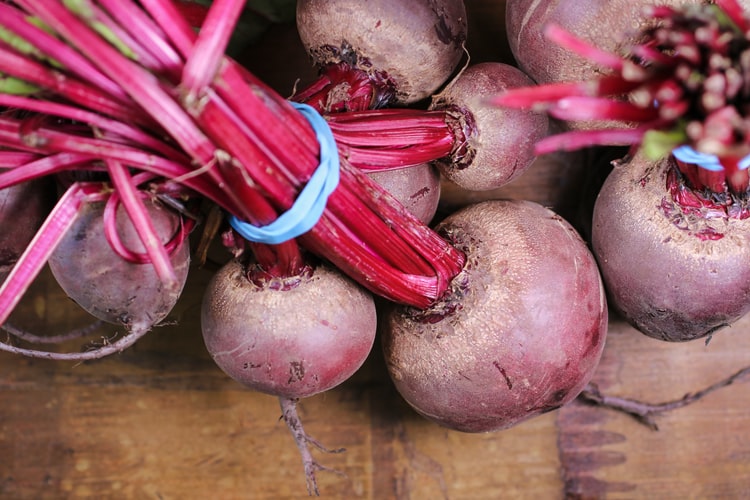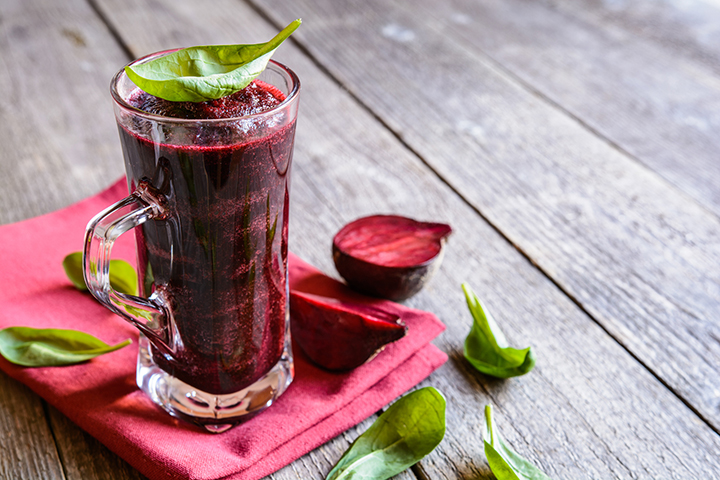There is no denying that eating fruits and vegetables has a positive and quantitative effect on one’s health and immunity. They complement the unique combination of nutrients, vitamins, antioxidants and minerals in your diet. They also help in detoxification, which eliminates toxins from the body. One such superfood is beets, a star in popular smoothies nowadays. Many health professionals and nutritionists promote its consumption because it is rich in vitamins and minerals. Beets may not be the first choice inyour diet, but you should not miss them when buying groceries.
– Nutritional facts about beets
Beetroot is a root vegetable with long stems, thick skin and reddish-purple color. Beets have an earthy and slightly bitter taste, but they are best when paired with light, sweet and fresh flavors.
* Information on the nutrients of beets per 100 grams
- Energy – 43 kcal
- Carbohydrates – 8.8 g
- Dietary fiber – 3.5 g
- Fat – 0.1 g
- Protein – 1.7 g.
With its vibrant color, beets are also versatile root vegetables, rich in nitrates, betalaine pigments, fiber and an excellent source of various vitamins and minerals such as folate, magnesium, potassium, vitamin B-6, iron, thiamine, riboflavin, glutamine, zinc, copper and selenium, with established use in blood circulation, menstruation and hepatobiliary disorders. The importance of dietary nitrates found in beets is effective in treating hypertension, contributing to the reducing the level of cholesterol in the arteries, which can cause a heart attack. An impressive resume doesn’t end here and it’s no shock that beets are useful for improving your athletic performance and for promoting health that helps you live longer.
– 9 impressive benefits of beets are listed below:
# Increase athletic performance
With all the nutrients, you can combine beets in your diet as well as with training. When you add beetroot juice or eat it raw, you could run faster and longer, with less effort. The sugars present in it give you an instant energy boost with the addition of extra nitrates and iron. The results of one study showed that 30 physically active men who received different doses of beet juice had less inflammation and faster muscle recovery.

# Prevents anemia
Many may believe that the red color of beets helps prevent anemia. However, beetroot juice contains a lot of iron, folic acid, which helps create red blood cells that carry oxygen and nutrients through various parts of the body to ensure a healthy blood count. The fact is that the renewal of erythrocytes is imperative to help prevent menstrual disorders in women, anemia and menopausal symptoms in women by regularly taking beets juice.
# lowers blood pressure
Nitric oxide present in beets acts as a vasodilator, thus increasing blood perfusion in tissues. Many studies have shown that the increase in nitric oxide that occurs after eating beets can help lower blood pressure in healthy people. This is because the nitrates in beets help the blood vessels to relax, thusreducing the state of high blood pressure. For people with high blood pressure, adding a glass of beetroot juice of 200-250 ml or adding a salad of 80-100 grams of beets daily will help reduce hypertension or blood flow disorders and help maintain healthier levels.
# Have super antioxidant effect
The antioxidant effects of food help defend cells from damage and increase the level of antioxidants in the blood that protect our body from harmful free radicals. If the level of free radicals increases in the body, they can cause oxidative stress that damages your DNA and cell structure. Fortunately, the increase in super antioxidants from consuming beets helps to suppress inflammation and significantly alleviate the pain of osteoarthritis. Also, based on some scientific analyzes, beets contain up to 1.7 mmol of antioxidants per 100 grams. This is evidence that it reduces the risk of cancer in the colon and digestive tract.
# Helps with constipation
Beets are rich in fiber. It is very useful in regulating your digestive processes and easing the intestines, offering quick relief from constipation. The betalains present in beets are thought to help maintain good overall digestive health. However, a certain percentage of the population may experience a strange side effect: “It changes the consistency and color of stool and urine.” In technical terms, the pigments of red beets in urine or stool are called beeturia, which is considered to be mostly harmless in most cases.
# Affects healthy brain functions
Beets also contain significant amounts of boron, which are related to the production of human sex hormones and help increase brain function and concentration. In fact, beets are effective in maintaining healthy brain function and preventing dementia (symptoms of memory impairment, communication and improving cognitive functions as we age.
# Acts like a natural aphrodisiac
The link between the use of beets as a natural aphrodisiac is not a recent discovery. It came from the time of the ancient Rome when beets were first used as a folk remedy for treating erectile dysfunction and impotence as an aphrodisiac. To this day, beetroot juice has been used directly to benefit the libido of women and men. Research has confirmed that beet juice contributes to the treatment of this because it contains a lot of nitrates. Nitric oxide serves as a vasodilator to open blood vessels.
# Helps detoxification
Beets naturally detoxify your body from harmful toxins with the help of group phytonutrients called betalains. Betalains present in beets purify the blood, skin and liver and in a great way enhance the functionality of the body. It also protects the liver from oxidative damage and inflammation, and at the same time strengthens its natural enzymes for detoxification. In order anti-inflammatory and detoxifying properties, beets are a powerful cleanser, and at the same time extremely nutritious.
# Rich in nutrients, and has a very low-calorie content
Beets have extremely few calories; they only have 60 calories per cup. This includes about 13 grams of carbohydrates, as well as 4 grams of fiber – which helps you stay full longer! It contains potassium (442 milligrams per cup), folate (or vitamin B9), manganese, magnesium and vitamin C, and still has few calories – only 30 in half a cup. A beautiful-looking and delicious recipe made with spinach, ginger and lemon juice. Try this healthy summer drink!

– Ingredients needed:
- 2 medium beets, peeled and coarsely chopped
- 8-10 spinach leaves
- a small piece of ginger
- 1 small green pepper
- 1 tablespoon lemon juice
- Pink salt
-Preparation:
Add all the ingredients and 2½ cups of water to the blender.
Mix until you get a smooth mixture.
Pour into glasses and serve.
